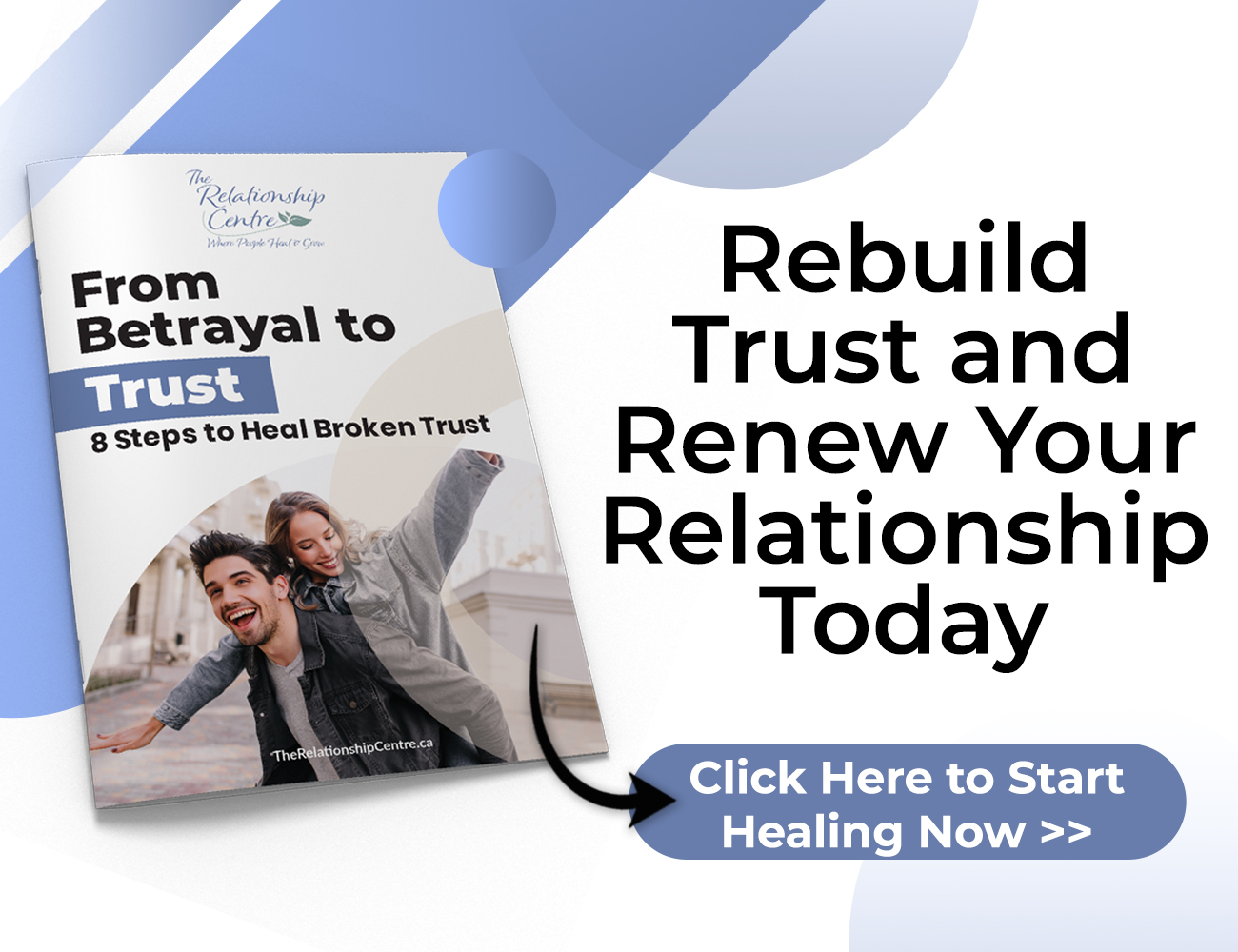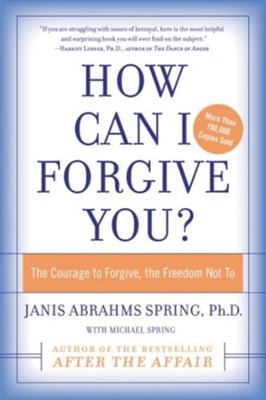Have you been betrayed by your partner?
Have you hurt your partner by behaving in ways that violated their trust within your relationship? If so, you are not alone. Studies report that just over half of relationships have been damaged by some form of betrayal and one point or another.
Broken trust can be as obvious as infidelity or more subtle as withholding information that is important in a relationship


Betrayal is the breaking of an agreement, implicit or explicit, that is considered vital to the integrity or safety of a relationship. The capacity of a relationship to recover from a betrayal has a lot to do with the responses, particularly on the part of the betrayer, to the situation. The more open and non-defensive they are, the more likely it is that there will be a resolution. When both partners are committed to this as an outcome, the likelihood increases exponentially.
The lies and denials that are used to cover-up a transgression can do much more damage than the violation itself. Even if the lie is never uncovered and the offence is not revealed, there can still be great harm done to the foundation of the relationship. Trust is inevitably sacrificed even when secrets go undetected. Most, but not all betrayals and acts of deceit can be healed. While there is no generic template to apply to these situations, there are some guidelines that can facilitate the recovery process.
How to Heal Broken Trust
- Acknowledge your actions to your partner before, not after they find out. The longer you have been living a lie, the deeper the damage, the lesser the chance of a full recovery and the longer the healing process takes. Acknowledging your transgression before your partner discovers it from another source creates a higher level of trust than waiting until you’ve been found out.
- Get honest. Commit yourself to zero tolerance for dishonesty in your relationship. Even after you’ve successfully demonstrated your commitment, don’t be surprised if your partner needs a lot of evidence that you are trustworthy before they’ll be ready to believe anything you say. This will take time and will require patience on your part.
- Address the questions that your partner asks you. Don’t be defensive in response to your partner’s need for information. They need to make sure that you aren’t withholding anything else and they probably have a lot of questions that only you can answer. Be guided by the question “Is this information necessary for the healing of our relationship?” Keep in mind that your intention in this process is to communicate in a way that will restore goodwill. It’s not necessary to give details that will be unnecessarily inflammatory. Try to see the questions as an opportunity for you to demonstrate the kind of truth-telling that your partner needs to see in order to begin to trust you again. Even if the questions seem to be repetitive or unnecessary, they need answers in order to come to terms with the situation.
- Listen to their feelings—all of them. Don’t analyze, evaluate, judge, or reason with your partner in regard to any of their feelings. Listen openly to their experience. It’s possible to listen respectfully even if you don’t see eye to eye about everything. Feelings aren’t necessarily rational, but they are real. You will have your turn to express your perspective, but not until they’ve expressed what they want you to hear.


- Be patient. Reassure your partner that they can take as much time as they need to rebuild trust. The process will probably take longer than you think it should and will require self-restraint and compassion. In the end, however, it is likely to bring about a deepening of the connection between the two of you. Resist the temptation to urge them to “get over it.” Give your partner reassuring words, like: “I know that I am serious about this commitment and I understand that you need more time to see the evidence and trust me. I can give you all the time you need.”
- Take responsibility for your actions. Acknowledge the truth of what you’ve done and avoid any explanations, rationalizations, excuses, or justifications for your behaviour. There will be a time to view things from a larger context when your partner will be more open to the conditions in the relationship that contributing to the situation, but that will come later.
- Stay focused on your intention. The work of recovery from a breach of integrity in a committed partnership takes time and effort and can be humbling. The stakes are high, and the benefits of doing the work are enormous. Successful healing can transform a damaged partnership into a sacred union. Many couples have told us that in the end, the crisis that came from the betrayal ultimately led to a profound deepening of the love and trust that they both currently share.
- Consider couples therapy. Recovering from a betrayal can be overwhelming for most couples. The desire to move on and escape the pain is compelling however; the foundation of the relationship will remain fractured. Our relationship therapists know the exact steps to help couples understand and share what happened, the impact on each of them and the necessary steps to rebuild trust. If you are having difficulty moving through the steps listed above, consider booking a couples therapy session to learn how it can put your relationship back on a stronger foundation.
Recovery after a betrayal, in many cases, is a real possibility. And the benefit of investing in that repair work often creates a relationship that is stronger than what was previously experienced. At The Relationship Centre, we believe in relationships and doing the hard work to create the strong healthy partnerships we all want and deserve.
Call us today at 613-848-3683 to discuss how you can build a strong, healthy relationship.
by Mary Joan Brinson MSW, RSW
Book Recommendation
Until now, we have been taught that forgiveness is good for us and that good people forgive. Dr. Spring, a gifted therapist and the award-winning author of After the Affair, proposes a radical, life-affirming alternative in How Can I Forgive You that lets us overcome the corrosive effects of hate and get on with our lives—without forgiving.











